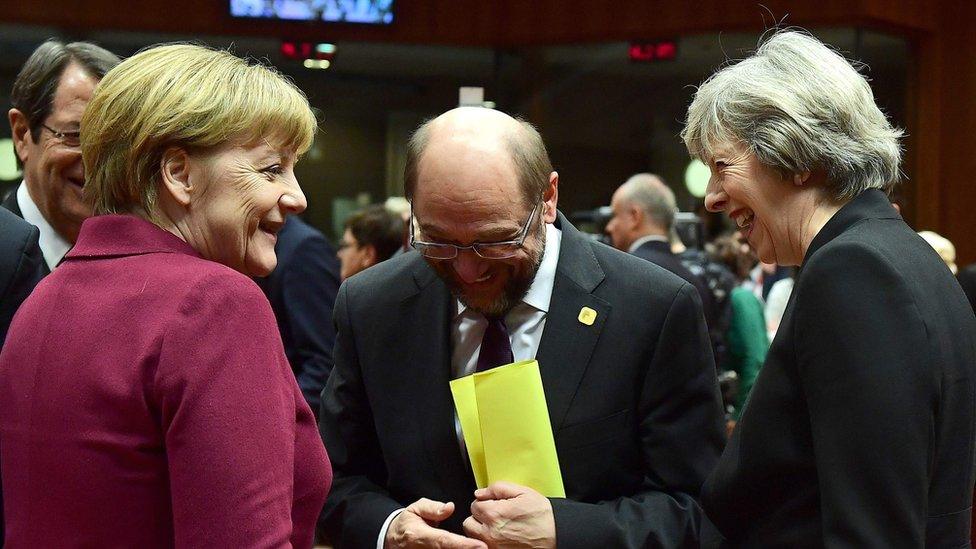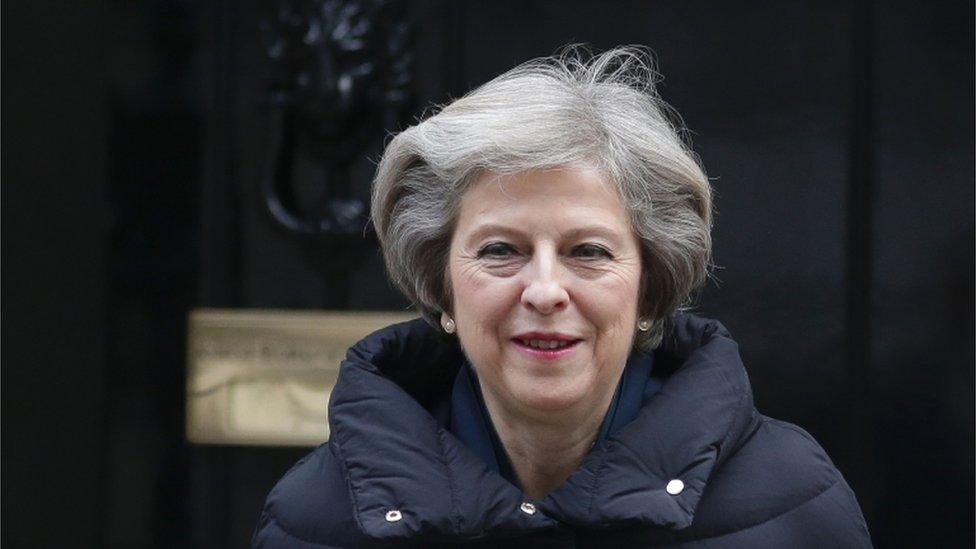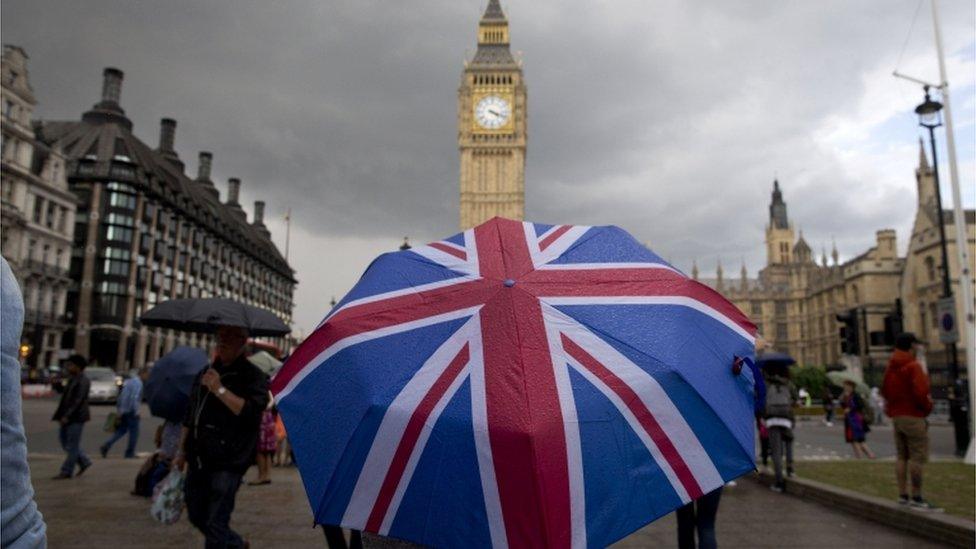Brexit: MPs urge May to clarify trade aims before talks
- Published

Talks with Germany and the EU's 26 other members are expected to begin within months
Theresa May must spell out whether she wants the UK to remain in the single market and customs union, before Brexit talks begin, MPs have said.
The Commons Brexit committee said the PM should "declare her position" by the middle of February to allow sufficient time for scrutiny.
In its first report, it said MPs must get a vote on the final deal and backed having an interim deal if needed.
In response, the government said its goal was a "smooth and orderly exit".
The prime minister will give more detail of her objectives in a speech on Tuesday. She has said she will formally trigger the process of leaving the EU by the end of March.
Once the Article 50 process begins, the UK will have two years to negotiate the terms of its exit from the EU and outline its future relationship - unless both sides agree to extend the talks.
The committee warned that it would be "unsatisfactory and potentially damaging" to both sides if the UK left with no agreement and transitional procedures may need to be put in place if it did.
In its debut report, the cross-party select committee on leaving the EU - set up in the wake of last year's Brexit vote - made a number of other recommendations, including:
The rights of EU nationals in the UK and vice versa must be an "early priority" in talks
Parliament and devolved assemblies must be kept "fully informed" once talks begin
Border arrangements between Northern Ireland and the Republic must be settled
The civil service must be "properly resourced" to deliver Brexit
Co-operation in defence, security and justice should continue
Under pressure from Labour, the SNP, Plaid Cymru and some Conservative MPs, the government agreed to set out its primary negotiating objectives before the process begins.
While not expecting ministers to compromise their negotiating hand, the committee said clear positions on the customs union and the single market were needed.
And any economic assessments carried out on the options relating to market membership and access should be made public, it said.
The prime minister has rejected suggestions that the UK faces a choice between a "hard Brexit" - with greater trade flexibility but the prospect of tariffs and customs duties - and a "soft Brexit" where continued market access would come with obligations to the continued free movement of people and to the European Court of Justice.
'Hugely complex'
EU leaders have said membership of the single market would be incompatible with immigration restrictions, which Mrs May has indicated will be a priority. Labour MP Hilary Benn, who chairs the committee, said it would be "difficult" to reconcile the two.
"This is going to be a hugely complex task and the outcome will affect us all. The government needs to publish its Brexit plan by mid February at the latest, including its position on membership of the single market and the customs union, so that it can be scrutinised by Parliament and the public."
Negotiations on the UK's divorce terms and the basis of its future relationship with the EU should be conducted at the same time, Mr Benn said.

Hilary Benn says MPs must be kept "fully informed"
As a "bare minimum", he said by the time of the UK's departure, a "clear framework" for the future of trade with the EU should be in sight.
An interim deal may be required, he added, to avoid the disruption to business of overnight changes to customs procedures, regulatory regimes and immigration rules.
'Absurd'
Several Conservative MPs have said a transitional deal which continues to bind the UK to EU institutions, even for a limited period, would be unacceptable.
The committee also said the government should give an explicit commitment at an early stage to give MPs a vote on the final deal.
Businessman John Longworth, a key figure within the Vote Leave campaign, said it was "absurd" to presume that transitional arrangements would be needed before discussions had even started.
"Provided the prime minister makes clear now the direction of travel; that we are leaving the single market and the customs union, business will have plenty of time to plan," he said.
The Department for Exiting the European Union said it would strive for the "best possible" outcome for the UK.
"We've said we will set out our plans, subject to not undermining the UK negotiating position, by the end of March and that Parliament will be appropriately engaged throughout the process of exit, abiding by all constitutional and legal obligations that apply," a spokesman said.
- Published12 January 2017

- Published13 January 2017

- Published30 December 2020
